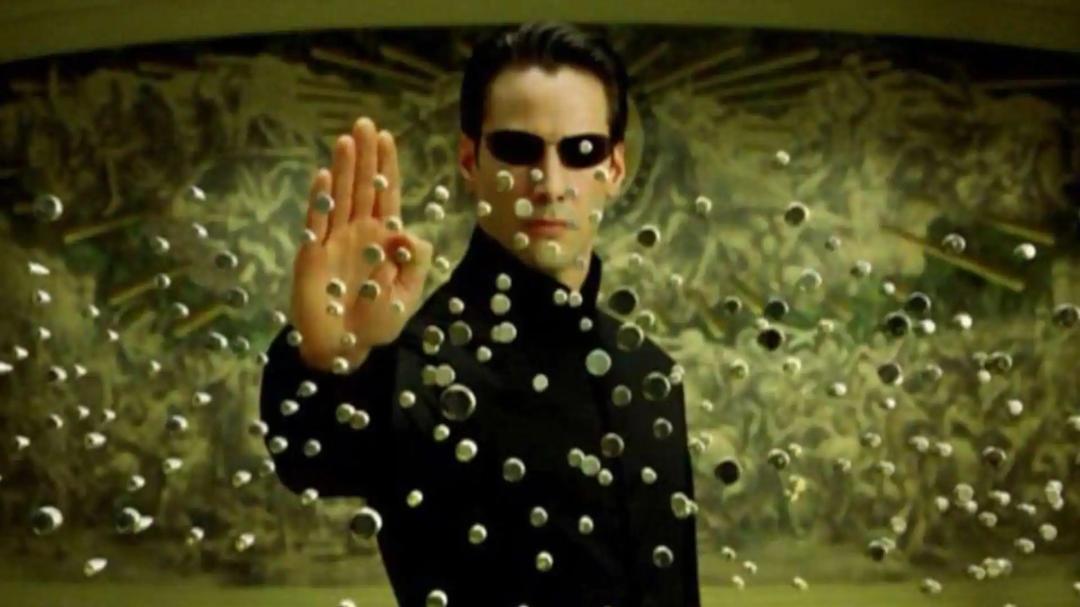
Physicists prove universe isn’t a computer simulation like in ‘The Matrix’
The idea that our universe is a computer simulation, popularized by the iconic 1999 film “The Matrix,” has long fascinated scientists and philosophers alike. The notion suggests that our reality is merely a complex simulation created by a more advanced civilization, raising questions about the nature of reality and our place within it. However, a recent study by physicists from the University of British Columbia Okanagan (UBCO) has mathematically proven that this concept is not feasible, providing a significant breakthrough in our understanding of the universe.
According to a press release, the researchers have demonstrated that the universe is not a computer simulation, as proposed by the “Matrix” hypothesis. Instead, they have shown that the fundamental laws of physics that govern our universe are built on “a type of understanding that exists beyond the reach of any algorithm.” This finding has significant implications for our understanding of the universe, as it suggests that the underlying principles that govern reality are more complex and nuanced than previously thought.
The study’s co-author emphasized that the fundamental laws of physics cannot be contained within space and time, as they are the very entities that generate these concepts. This idea challenges the conventional view that the universe can be reduced to a set of algorithms and computational processes, highlighting the limitations of our current understanding. By demonstrating that the universe operates on a level beyond the reach of algorithms, the researchers have provided a new perspective on the nature of reality, one that underscores the complexity and richness of the physical world.
The concept of the universe as a computer simulation has been debated by scientists and philosophers for decades. Some have argued that if a civilization were advanced enough to create a realistic simulation of reality, it would be impossible for us to distinguish the simulated world from the “real” one. This idea has sparked intense speculation and discussion, with some even suggesting that the likelihood of our universe being a simulation is quite high.
However, the UBCO study provides a mathematical framework that disproves this hypothesis. By analyzing the fundamental laws of physics and their relationship to space and time, the researchers have shown that the universe cannot be reduced to a set of computational processes. This finding has significant implications for our understanding of the nature of reality, as it highlights the limitations of our current understanding and encourages us to think beyond the boundaries of conventional thought.
The study’s results also have implications for the field of artificial intelligence, as they suggest that true intelligence and consciousness may be more complex and multifaceted than currently thought. If the universe is not a computer simulation, then it is likely that intelligence and consciousness arise from a more nuanced and intricate interplay of physical and biological processes. This idea challenges the conventional view of AI as a purely computational process, highlighting the need for a more holistic and multidisciplinary approach to understanding intelligence and consciousness.
In conclusion, the UBCO study provides a significant breakthrough in our understanding of the universe, demonstrating that the fundamental laws of physics are built on a level of understanding that exists beyond the reach of any algorithm. This finding has far-reaching implications for our understanding of reality, encouraging us to think beyond the boundaries of conventional thought and to explore new perspectives on the nature of the universe. As we continue to explore and understand the complexities of the physical world, we may uncover even more surprising and fascinating insights into the nature of reality.
The idea that our universe is not a computer simulation may seem like a straightforward concept, but it has significant implications for our understanding of the world and our place within it. By demonstrating that the universe operates on a level beyond the reach of algorithms, the researchers have provided a new perspective on the nature of reality, one that underscores the complexity and richness of the physical world. As we continue to explore and understand the intricacies of the universe, we may uncover even more surprising and fascinating insights into the nature of reality.
The study’s findings also raise important questions about the limits of computational power and the potential for artificial intelligence to truly replicate human intelligence. If the universe is not a computer simulation, then it is likely that there are fundamental limits to the power of computation, and that true intelligence and consciousness arise from a more nuanced and intricate interplay of physical and biological processes. This idea challenges the conventional view of AI as a purely computational process, highlighting the need for a more holistic and multidisciplinary approach to understanding intelligence and consciousness.
Ultimately, the UBCO study provides a significant contribution to our understanding of the universe, highlighting the complexity and richness of the physical world. By demonstrating that the fundamental laws of physics are built on a level of understanding that exists beyond the reach of any algorithm, the researchers have provided a new perspective on the nature of reality, one that encourages us to think beyond the boundaries of conventional thought and to explore new perspectives on the nature of the universe.
News Source: https://news.ok.ubc.ca/2025/10/30/ubco-study-debunks-the-idea-that-the-universe-is-a-computer-simulation/




